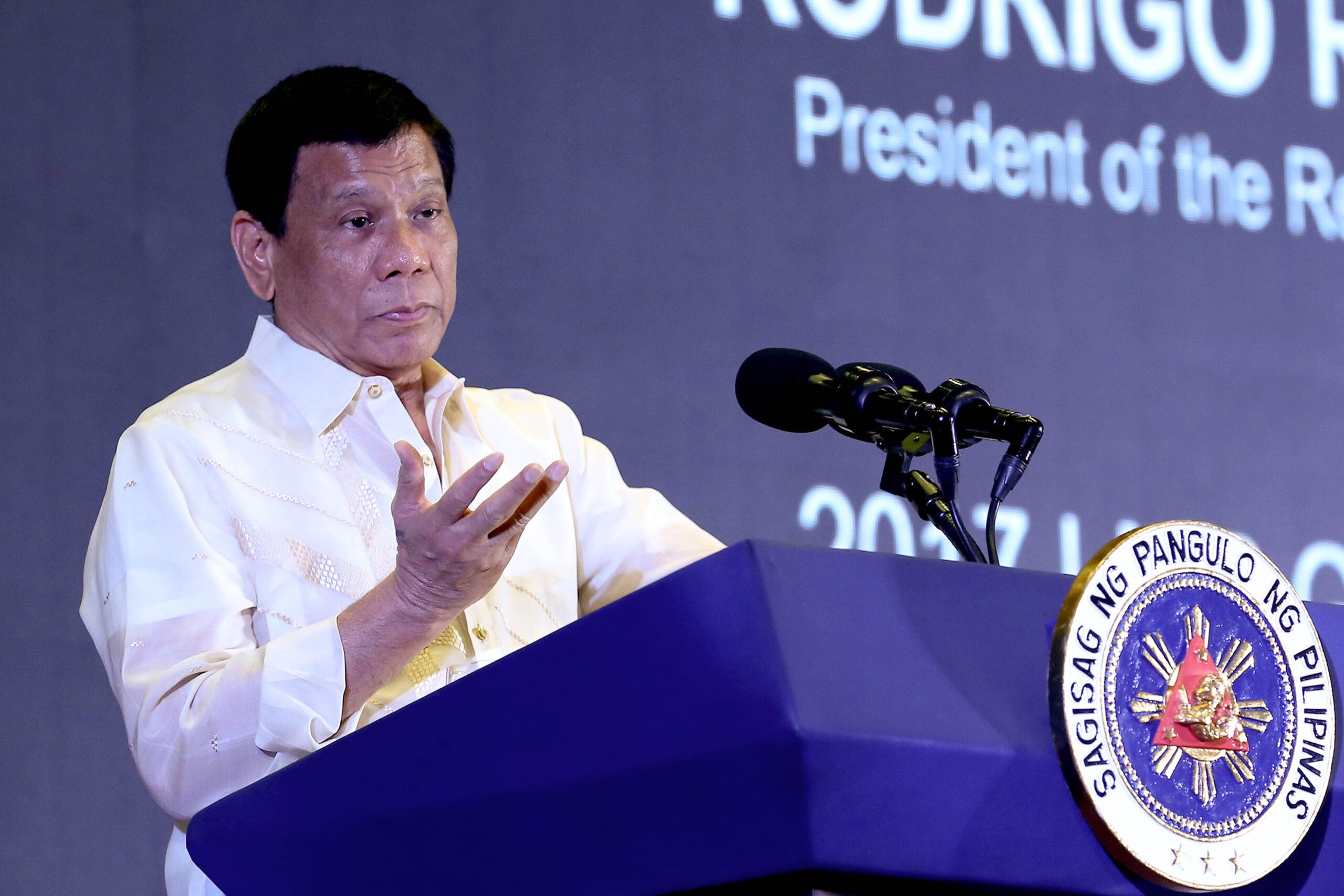SUMMARY
This is AI generated summarization, which may have errors. For context, always refer to the full article.

Something is in the air and it is striking in how it is upending our democracy and the way we think.
As I try to put my finger on it, the more it points me to paranoia in the topmost layers of government – from President Duterte to his allies. It is so palpable, driven by insecurity and a thinking awash in conspiracy theory.
They talk of plots to oust the President by a party whose membership has dwindled faster than we could blink, led by Vice President Leni Robredo who has measly powers – no Cabinet post, no bureaucracy under her control – and a more measly budget. The opposition is weak. It has yet to re-build and re-invent itself and reach out to a wider public with fresh ideas.
Ernesto Abella, the President’s spokesman, pounced on Robredo’s most recent weapon in this grand plan to destabilize the Duterte government: a short video message played at a UN side conference in Vienna where she decried the extrajudicial killings in the government’s unrelenting war on drugs.
Interior Secretary Ismael Sueno followed Abella’s line, and Tourism Secretary Wanda Teo and Pagcor chief Andrea Domingo joined the chorus.
Abella dismisses news stories critical of the government, particularly those of the New York Times, as the work of paid hacks and an ingredient in the plot, again, to yank the President out of office.
This thinking is so old. Subjects of news reportage who don’t like what’s written about them blame everyone else except themselves. They refuse to accept that they did something wrong or made a bad decision – and do a course correction.
If you disagree with how Duterte carries on his centerpiece program, the war on drugs, you’re either deeply partisan yellow or in the payroll of some opposition group. There is no space for honest discourse, a civil exchange of ideas. That, too, is being killed.
What is vexing, though, is that the reality doesn’t match the paranoia: Duterte holds sweeping power over Congress, continues to enjoy high popularity rating, and has made violence – the killing of suspected drug traffickers – acceptable to many while instilling fear.
Yet why are they afraid of Robredo, the New York Times, and fact-based journalism?
Their worldview, as it turns out, is shaped by conspiracies which make it easy for them to blame enemies and get away with their misdeeds and bad policies. It is the laziest kind of thinking that subverts self-criticism and does not allow for a vision to flourish.
As Ivan Krastev, an academic, has aptly written, “…conspiracy theories…lack any kind of vision for the future or any claim about what kind of world we want to live in…They produce zombies either unwilling or too uncomfortable to challenge their political leaders.”
Which brings us to the most dangerous thing: we are led by officials who have a very narrow tolerance for opposing views and dissent.
Women are primary targets
And it looks like prominent women officials are the primary targets. First, it was Senator Leila de Lima. Using the force of government, Duterte went after his ferocious critic, successfully pushing her to jail.
Now, the heat is on Robredo. The President’s men and women have found a new enemy ensconced in the thinking that they could rally the nation behind them if they point to a face, a person who embodies their fears.
Having won the fight versus the opposition senator, Robredo is now the new De Lima, as a Rappler editorial has pointed out.
Robredo’s sin, says Speaker Pantaleon Alvarez, is that she is behind the impeachment complaint against Duterte. She should therefore also be impeached, he declares, for speaking out against the government’s human rights abuses in a video played before an international audience.
Duterte claims, in a talk before Filipinos in his recent visit to Yangon, that Robredo is “too eager” to be president.
Political noise
It is not far-fetched to say that Ombudsman Conchita Carpio Morales is next on the list.
Out of left field, Greco Belgica, a Duterte ally who ran for the Senate in 2016 but lost, wanted the Ombudsman disbarred. He accused Carpio-Morales of partisanship for not charging former President Aquino in the case over the Disbursement Acceleration Program.
The Supreme Court immediately dismissed the complaint because the Ombudsman can only be taken out through impeachment. Belgica says he will go the impeachment route.
While Belgica’s move simply adds to the political noise, this brings back Duterte’s campaign statement. He was not yet president but he had already called out the Ombudsman and the Commission on Human Rights and warned them not to get in the way of his anti-crime campaign.
As it is, a fog of paranoia hovers over our democracy, caused by conspiratorial thinking. It robs our leaders of analytical thought and makes them get away with, well, murder.
How to lift the fog? That’s the challenge. – Rappler.com
Add a comment
How does this make you feel?





There are no comments yet. Add your comment to start the conversation.